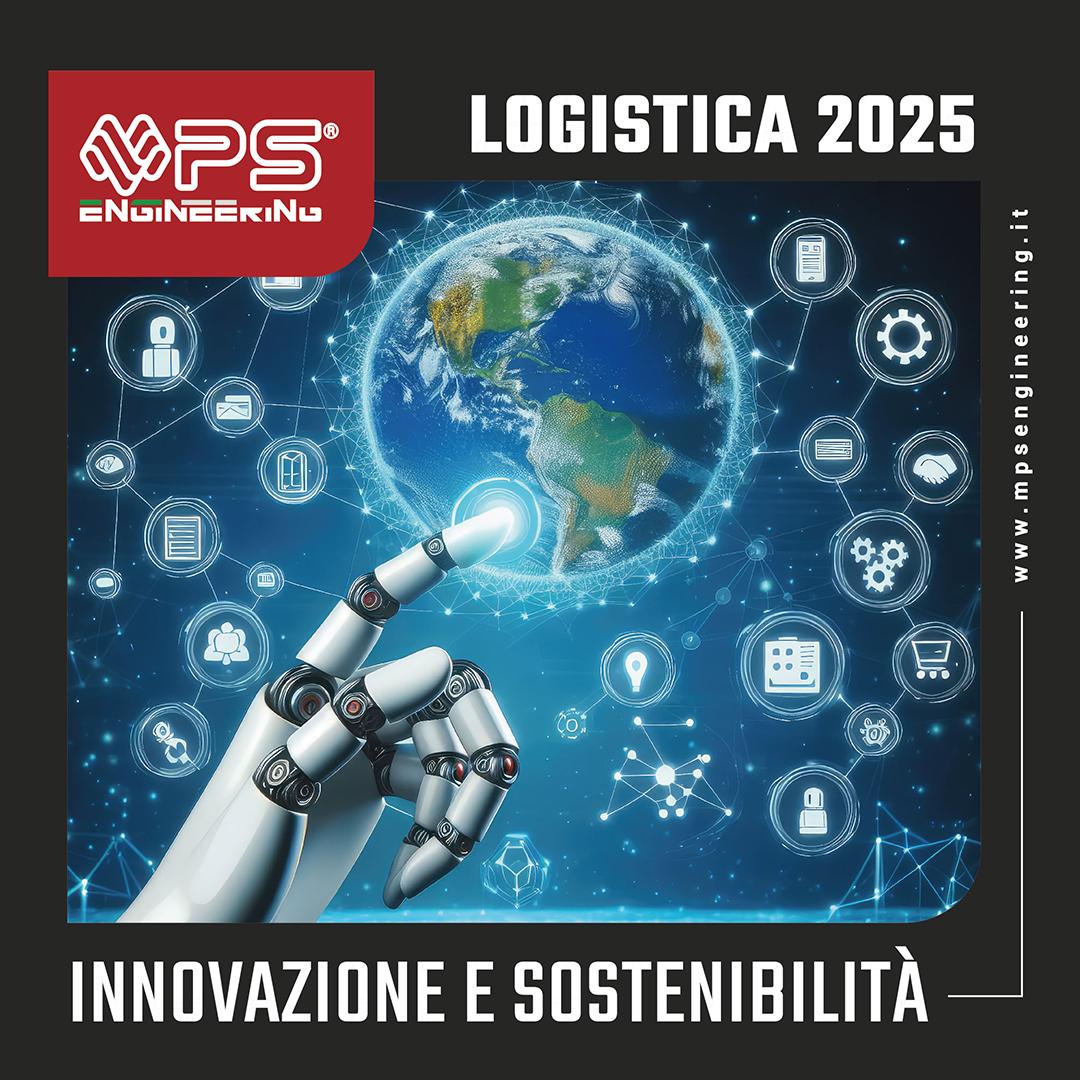Logistics in 2025 is set to undergo an unprecedented transformation, with sustainability, and technological innovation as the key pillars for addressing the sector’s new challenges. For businesses, rapidly adapting to rising consumer expectations and fast-changing market conditions will be critical to ensuring efficient and competitive operations.
MPS Engineering, with its expertise in warehouse automation solutions and AGV systems, is ready to take a leading role in this evolution.
Let’s explore the key trends that will shape logistics over the next twelve months.
1. Human-Machine Collaboration: The Future of Logistics Planning
The integration of artificial intelligence (AI) and human expertise will enable smarter and more flexible planning. AI will automate tasks such as route optimization, inventory management, and predictive analysis, allowing professionals to focus on strategic decisions.
Technology will act as a “virtual consultant,” analyzing vast amounts of data in real time and providing insights that facilitate faster and more accurate decision-making.
2. The Rise of Autonomous Mobile Robots (AMR) and Automated Guided Vehicles (AGV)
AGVs and AMRs will continue to revolutionize warehouses, becoming essential tools for optimizing operational flows. These intelligent robots can move freely, navigate obstacles, and dynamically adapt to warehouse layouts.
The flexibility of AMRs makes them ideal for handling seasonal demand peaks and easily scaling fleets based on business needs. As adoption grows, robotic systems will become one of the most strategic solutions for managing the complexity of modern supply chains.
3. Machine Learning for More Accurate Forecasts
Machine learning will be a cornerstone of logistics automation, enabling demand forecasting, inventory optimization, and more efficient route planning. By analyzing large datasets, companies can proactively adapt to market changes, reducing waste and inefficiencies.
MPS Engineering is committed to integrating advanced technologies into its systems to deliver scalable and customizable solutions designed to meet the unique needs of each client.
4. Cloud Solutions for Centralized Logistics
The digitalization of logistics will increasingly rely on cloud solutions, which allow centralized management of information. Innovative software will provide managers with a unified view of inventories, orders, and supplier communications, enabling timely interventions and decisions based on real-time data.
This connectivity will help companies improve operational resilience, a crucial factor in an ever-evolving global landscape.
5. Sustainability and Green Logistics
Sustainability will no longer be optional but a necessity. International regulations are driving a reduction in carbon emissions, encouraging the use of electric vehicles, energy-efficient storage systems, and eco-friendly delivery options.
The automated warehouses designed by MPS Engineering are already contributing to this revolution, offering solutions that optimize storage space and reduce energy consumption.
Preparing for the Future with MPS Engineering
In 2025, businesses that embrace technological transformations and adapt to new logistics scenarios will lead the market.
MPS Engineering, with its advanced “Automated Warehouse” solutions and “AGV and AMR” systems, is ready to support clients in implementing innovative and sustainable projects.
If you’re ready to prepare for the future of logistics, contact us today. Together, we can build a more efficient and sustainable supply chain.


